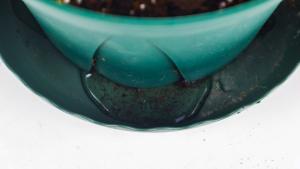How to Raise pH of Tap Water for Plants
Tap water is a convenient and cost-effective option for watering plants, but it may not always be ideal in terms of pH levels. A pH level that is too low or too high can impact the plant's ability to take in nutrients properly, so it's crucial to maintain a balanced pH level. In this article, we will discuss different methods to raise the pH of tap water for plants.
Using Baking Soda to Raise pH
Baking soda, also known as sodium bicarbonate, can be used to neutralize acidic water and raise the pH level. To use baking soda, mix 1 tablespoon of baking soda into 1 gallon of water and stir until completely dissolved. Then, water your plants with the mixture. However, it's essential to monitor the pH of the soil regularly when using this method, as baking soda can also raise the pH of the soil and cause nutrient deficiencies if used excessively.
Add Lime to Your Soil
Lime is a natural substance that can help raise soil pH levels. It's essential to note that lime takes time to break down, so it won't provide an instant pH boost. To use lime, add a layer of lime to your soil and work it into the topsoil. Lime should not be used excessively as it can cause an alkaline environment that is not suitable for plant growth. It should be used sparingly and monitored based on the requirements of the desired plants.
Alkaline Water Additives
There are various commercially available alkaline water additives that can be used to raise the pH level of water. These products can be found in garden centers, stores, or online. However, it's essential to follow the instructions and use it in moderation as excessive use can cause harm to the plant. Also, ensure the additive is suitable for the specific plant being grown as different plants require varying pH levels.
Use Eggshells
Eggshells not only provide a good source of calcium to the plant, but they can also help raise pH levels. To use eggshells to raise pH levels, clean them, crush them and add it to the soil. The eggshells will slowly break down, releasing calcium and raising the pH levels. Eggshells can also help improve soil structure and promote better water retention.
Conclusion
Raising the pH levels of tap water is essential for healthy plant growth, but it's essential to be cautious and monitor the pH levels regularly. The above methods are all natural and cost-effective ways to raise the pH level of tap water for plants. However, it's essential to select the right method for the specific plant being grown, as different plants require varying pH levels. By using these methods, you can ensure that your plants grow to their full potential.

 how many times do yo...
how many times do yo... how many planted tre...
how many planted tre... how many pine trees ...
how many pine trees ... how many pecan trees...
how many pecan trees... how many plants comp...
how many plants comp... how many plants can ...
how many plants can ... how many plants and ...
how many plants and ... how many pepper plan...
how many pepper plan...






























